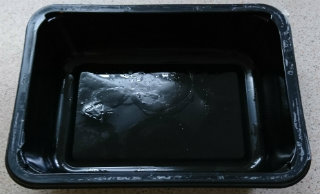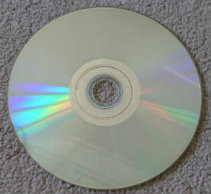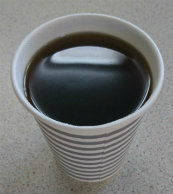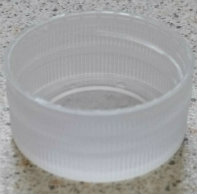
Fans blow lighter items off a conveyor belt as part of the sorting process at a recycling facility; “Milwaukee Materials Recovery Facility” (CC BY 2.0) by wrokic
You can technically recycle some items, but they need special facilities for processing. Two types of items are hard to recycle at standard facilities.
Below are a few common items that are hard to recycle.

Recycling centers use optical scanners to sort plastics. Each plastic type reflects light differently. However, black plastic does not reflect light and thus the scanner cannot "see" it.
Source — Severn Waste Services FAQs
Black plastic usually stores microwaveable meals and meat. Manufacturers and supermarkets use black because they believe it makes the food look more appealing to customers.
Source — BBC article on plastic packaging
You can check with your local authority to see if they recycle black plastic. The United Kingdom's (UK) Waste and Resources Action Programme (WRAP) worked with partners to develop black pigments that can be sorted by scanners. Some markets in the UK use the alternative pigments. However,
We could not find evidence that the United States is piloting this alternative pigment.
Source — WRAP trial for recycling black plastic

CDs and DVDs consist of thin layers of metal, plastic, lacquer, and dyes. Standard recycling plants cannot separate these materials from each other. Facilities designed to recycle CDs and DVDs first remove the dyes, aluminum, and data. Machines then granulate the leftover plastic for reuse.
Source — CD and DVD recycling factsheet
Digital downloads and online streaming have replaced many CDs. However, some music artists withhold new albums from streaming for a few months to increase sales1. Many of these sales still occur through CDs bought in stores.
DVD sales have fallen by 30% since 2004, but overall sales still total hundreds of millions each year2. DVDs are still popular because of the following:
Sources
First, you can reduce waste from the source by considering digital music, movie, and TV options. CD and DVD recycling options are available for those who prefer this media. While most municipalities do not recycle them, many electronics stores will take them back for recycling.

Manufacturers use polyethylene to make coffee cups waterproof. Standard recycling plants cannot separate this from the paper material1. The United States has only three facilities that can process paper with plastic lining2. The United Kingdom has two of these facilities, but one has never been used for this purpose1.
Sources
This latest type of hot beverage disposable cup improved on polystyrene, which is not biodegradable. Companies have begun looking for an even more eco-friendly disposable cup following increased public awareness of the issue.
First, you can reduce waste from the source by bringing a reusable cup to be filled at your cafe. Many large chains sell their own, and smaller cafes usually accept them as well.
If you forget your reusable cup, many cafes have begun cup collection programs due to increased awareness of the issue. The programs presumably ensure the cups go to specialized recycling facilities. Check with your shop to see if they have a program.
Source — BBC article on coffee cup solutions

Plastic bottles with the top still screwed on are hard to recycle because of the following:
Recycling plastic tops separate from their bottles is hard as well because of the following:
Sources
Caps are made from a harder plastic than the rest of the bottle because it is easier to grip and twist.
First, you can reduce waste from the source by buying larger containers with lids that are easier to recycle. Check with your recycler to see if they accept plastic bottle caps. Some facilities have improved equipment and can process plastic bottles with the caps on. The recycler will do one of the following: